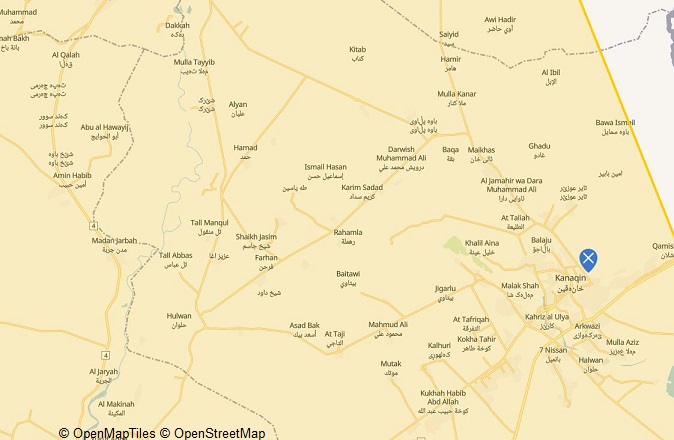1.4K
Kirkuk
- On October 12, Iranian-backed militias attacked the Khor Mor gas field near the Qadir Karam subdistrict twice with eight rockets without damage. The Koromor field, operated by UAE’s Dana Gas, has been hit five times since June, and the Peshmerga forces have foiled at least four attacks. Three hours after the attack, the “Northern Axis” of the Iranian-backed Popular Mobilization Units (PMU) announced that they seized the rocket launchers between Tuz Khurmatu and Amreli heights.
- In a press release, the commander of the joint operations in Kirkuk, Ali Fariji, said the deployment of military forces in the Kurdish area of the city is to ensure that the markets “stay open late” and “provide security.” His remarks face criticism from Kurds since heavy security forces in the Kurdish neighborhood spread fear and anxiety, leading people to stay home. On October 12, Fariji ordered the deployment of artillery on the historical citadel in the city without any objection so far from the archaeological department. Kirkuk province, mainly the Kurdish areas, has faced martial law by the Iraqi government since October 16, 2017.
- On October 9, a high-level Iraqi military delegation led by Brigadier General Abdul Amir Shamari, deputy commander of operations, arrived in Kirkuk. According to leaked information, his visit discussed the withdrawal of the federal police forces in Kirkuk and replacing them with the Iraqi army. Separately, on October 12, Iraqi troops fell into an ISIS (Da’esh) ambush near the Sargaran district. Three soldiers were wounded in clashes.
- On October 10, Peshmergas of the joint brigades with Iraqi forces protested in front of the Ministry for not being paid their eleven-month salaries. Officials promised the Peshmergas that wages would be paid at the beginning of the new year. Despite forming a joint force by the Peshmerga and the Iraqi army to fill vacuums in the disputed territories, Baghdad is yet to allow the deployment of the troops and allocate a budget for it.
- According to unconfirmed reports circulating in social media, the Kurdistan Democratic Party (KDP) and Patriotic Union of Kurdistan (PUK) overcame disputes on nominating a candidate for the next governor. The report suggested that KDP agreed for the PUK to select a non-member of the party for the post. The agreement between Kurdish and Iraqi parties in the new government will end the role of the current acting governor of Kirkuk, who was imposed on the province since October 16, 2017.
Khanaqin
- On Sunday, October 8, Ali Fazel Omran, the commander of Diyala operations, warned the Peshmerga forces and the Kurdistan Regional Government (KRG) security forces to leave the city of Khanaqin within a week. According to the previous agreement, the KRG police, Asayesh (Public Security), and a few Peshmerga scouts were stationed in Khanaqin to protect government buildings. The Kurdish forces rejected the calls while activists protested the decision. Simultaneously, a large Iranian-backed militia entered the city. As the situation escalated, Prime Minister Mustafa al Kadhimi suspended the decision and formed a committee of inquiry into the reasons for the decision. According to leaked reports, the decision was an Iraqi intelligence report, which raised false information about the Peshmerga and security forces. The intelligence report said that the KRG brought 300 Peshmergas, 700 Asayesh, and 250 Kurdish police into the city. Investigation revealed that the information in the report was wrong, and a Turkmen officer was involved in the matter. The security forces arrested the officer and are currently investigating his motives.
.

